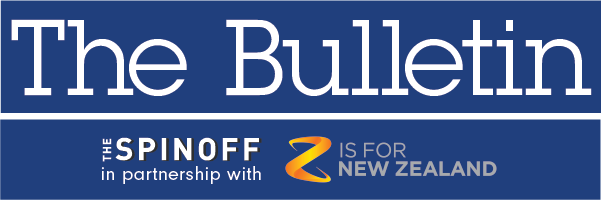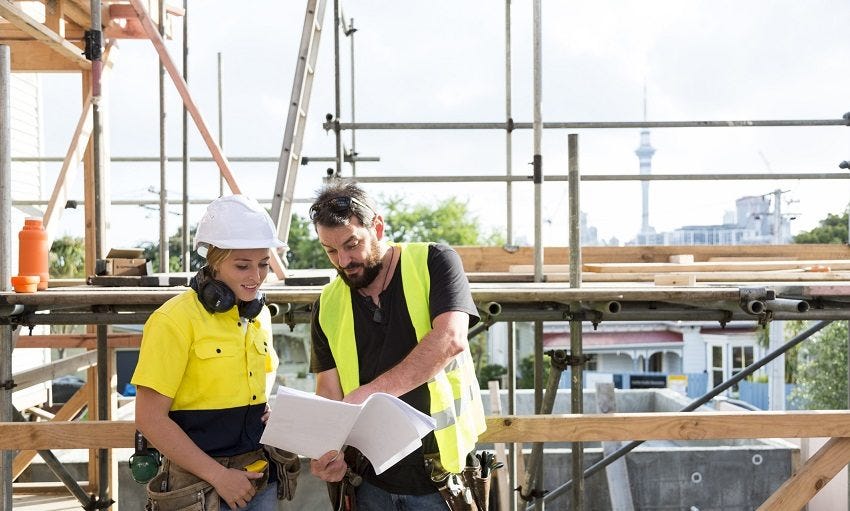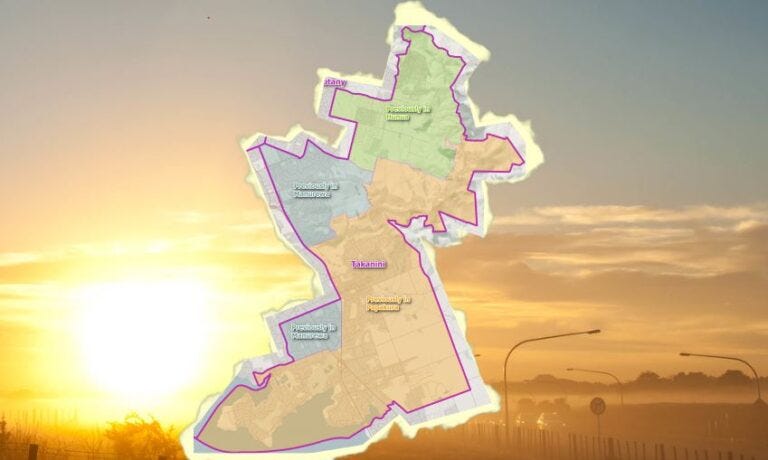Many stories told by latest unemployment figures
The picture is confusing, the top line figure is misleading, so what can we pick out that is relevant?

Good morning and welcome to The Bulletin for Thursday 6 August, by Alex Braae for The Spinoff. Presented in partnership with Z Energy.
In today’s edition: Many stories told by latest unemployment figures, Bloomfield says return of community transmission almost inevitable, and major tenancy reform package passes.

(Getty Images)
First of all, it's pretty clear that the top-line unemployment figure going down is a misleading picture of the state of the economy. Yesterday new figures from Stats NZ suggested unemployment was now down to 4%, which defied predictions, but of course it isn't the full story. The Spinoff's Michael Andrew has gone through the numbers, and found a big rise in the number of people who are 'underemployed' – that is, working less than they'd like to be. There has also been a fall in the number of hours worked, which suggests that many employers have responded to Covid-19 with tightening, rather than extreme mass layoffs.
A lot of the statistical quirks also have more to do with how various states of employment are categorised as well. Interest's David Hargreaves has looked at this, and noted that because of lockdown, some people were unable to look for work when they were surveyed – because of this, they're not technically counted towards the unemployment rate, even though they are not employed. He described the drop in unemployment as being "frankly nonsensical".
And of course, for those unemployed it remains a really difficult time right now.Radio NZ's Charlotte Cook has spoken to several people on the hunt for jobs right now, and it's tough to get hired for the sort of full time position that would provide security. One person said they'd applied for about 200 entry level receptionist jobs, and got none of them back.
Within the stats, there are some real discrepancies between who is losing work. Women in particular have been hit hard – writing on The Spinoff, Mary Jo Vergara from KiwiEconomics notes that this recession is very different from previous ones in that way, in that normally it is male-dominated work that suffers. You might recall back in May there was criticism of the 'shovel-ready' infrastructure projects to create jobs, because they'd largely benefit predominantly male workforces. There were some particularly interesting stats for Māori workers as well – Radio NZ's Te Aniwa Hurihanganui reports that the Māori unemployment and underutilisation rates have both fallen, while at the same time the number of Māori not in the labour force has risen. And on The Detail this morning, a particularly concerning stat was picked out – "the number of NEET people (15-24 year olds not in education, employment or training) has risen from 10.5 percent to 12.5 percent."
But having said all that, things are clearly not as bad as they could have been. While the wage subsidy will still be keeping some in jobs that are about to disappear, and tougher times are probably on the way, the economy hasn't collapsed – and compared to much of the rest of the world right now, that's kind of remarkable. Politically, it sets up an interesting battle going into the election. Newshub has reported on the clash over the stats between Grant Robertson and Paul Goldsmith – the finance minister says it shows efforts to fight Covid and save jobs have worked, while National's spokesperson says the stats are totally misleading. But as commentator Ben Thomas wrote on The Spinoff yesterday, the stats are the stats, and they'll make it much more difficult for National to make an economic management case going into the election.
An exciting development for The Spinoff: We've now got merch for sale! You can check out everything we've got on offer here, but among other things we've got tea towels, pens, coffee cups, and T-shirts for sale. You can also buy copies of The Spinoff Book, which we released at the end of last year, featuring dozens of the best pieces of writing to appear on the site over our first five years.
Community transmission of Covid-19 is highly likely to return at some point, Dr Ashley Bloomfield has told Newshub. Even though it has been close to 100 days since the last case of community transmission, Bloomfield says the experience of other countries shows that there is a need to prepare intensely for it to happen – "not if, but when", as he put it. He said widespread mask-wearing would be much more likely to be part of the response this time around, as they have shown some effectiveness in other countries. For more on the science of mass-masking, I'd encourage you to read this piece from the University of California, which goes into both the latest understandings, and also clears up the mixed messages on the topic that came out earlier in the pandemic.
Meanwhile, National deputy leader Gerry Brownlee put out a distinctly odd press release calling on the government to "come clean" about what they knew about the state of Covid-19 in this country. Apparently it was "inexplicable" for the director general of health to issue a warning that a highly contagious virus will probably get out of the containment facilities. Brownlee also said "it doesn't add up" for health minister Chris Hipkins to today outline what circumstances might require mass masking. In other news, the previously contained outbreak in the Australian state of Victoria continues to spiral.
A big package of renting reforms passed under urgency last night, which in general terms increase rights for tenants. Stewart Sowman-Lund has reported on the various details, including an end to no-cause evictions for periodic tenancies, and the automatic rollover of fixed term tenancies to periodic under certain conditions. The organisations who represent landlords are pretty unhappy with the changes, and property commentator Ashley Church gave what will likely be a politically useful endorsement in describing the government as the most “anti-landlord” in our country’s history.
The National Party put out a range of announcements yesterday, including a massive roading project for Wellington. An interesting wrap of that all comes from Newsroom's Dileepa Fonseka, who has reported on the suggestion to create a regional transport authority – like Auckland Transport, basically. There could well be something in an idea like that, given the debacles the Wellington bus system has had over the last few years. Under the plan, there would also be a new Terrace tunnel, and expansion of the Mt Vic tunnel would be sped up.
In other news, party leader Judith Collins ruled out taking tax cuts into the election, reports Stuff's Thomas Coughlan. However, she also promised not to raise taxes, and also confirmed that plans would continue for changing indexation levels so that they automatically adjust for inflation – in other words, to prevent people creeping up tax brackets without realising.
A couple of interesting stories about Fonterra's environmental impact: Business Desk (paywalled) reports that the cooperative is more keen on reducing emissions from processing plants through switching from coal to wood, rather than switching over to electricity. It is seen by Fonterra as the "single most effective thing the company can do to reduce its emissions" – presumably, a dairy company can't exactly consider getting rid of the methane belching cows. Meanwhile, a proposed Fonterra wastewater plant near Cambridge is proving controversial with locals, who say it should be put on industrial land instead of farmland, reports Newsroom.
Another resignation from the executive team of the Canterbury District Health Board: Stuff's Oliver Lewis reports that four out of the 11-strong team are now out the door, with a relationship breakdown between executives and the board understood to be a contributing cause. Health minister Chris Hipkins isn't publicly getting involved with what has been described as an "implosion" by others, saying he has confidence in the board to ensure effective senior management.
Got some feedback about The Bulletin, or anything in the news?
Drop us a line at thebulletin@thespinoff.co.nz

Right now on The Spinoff: Liam Hehir explores why as a conservative he finds so much to like about Jacinda Ardern's tenure so far. Stewart Sowman-Lund speaks to Sir John Key about border restrictions, and whether he'll read Judith Collins' book. Vincent Ochilet and Niamh Lawless write about the once-again growing threat of a nuclear attack, 75 years after Hiroshima. Justin Latif explores the diverse new electorate of Takanini, and what the major focuses of that campaign could be. There's a brand new episode of Gone By Lunchtime out, focusing on Auckland Central and David Seymour's surge in the polls. Teuila Fuatai writes about DiscoveryCamp, and how it gives Māori and Pasifika high school students a taste of life as a scientist. And Casey Lucas gives us the inside word on some controversy going down around sci-fi book awards.
A content warning on today's feature – it describes sexual assault and image based sexual abuse. Zoe Madden-Smith at Re News has spoken to a survivor about what this happening meant for her life, and why she's now willing to speak out publicly against it. It's a form of violence that doesn't necessarily get talked about enough. Here's an excerpt:
This support gave her the strength to report her abuse to the police. Her friend and her friend’s boyfriend who had seen the image also made a statement. But when the police reached out to Madeleine for further information on the case, she decided not to continue.
“At this point, I was just emotionally so distraught and I really needed to give myself some love and give myself some time to recover and heal from that trauma,” she says. Her counsellor also warned her about the system’s flaws and how difficult it would be to get justice without having the images as evidence.
The case is now closed because it has been two years since she made her statement, but if she wanted, Madeleine can reopen it. She isn’t ready just yet, but if she found the photos she might be.
It looks like the All Blacks will actually get to play a game this year, against a combined Pacific team. The NZ Herald's (paywalled) Liam Napier reports that an announcement is expected this week of a one-off fixture for October 3, with many of the Pacific team likely to be drawn solely from provincial unions – that's something of a sticking point in negotiations so far, with concerns that it will weaken teams too much. Either way, the game is looking much more plausible than playing South Africa – or even possibly Australia – at any stage this year. Meanwhile, Newshub's Ollie Ritchie reports Super Rugby Aotearoa could stick around for another season, particularly if things don't improve in Australia.
That's it for The Bulletin. If you want to support the work we do at The Spinoff, please check out our membership programme




